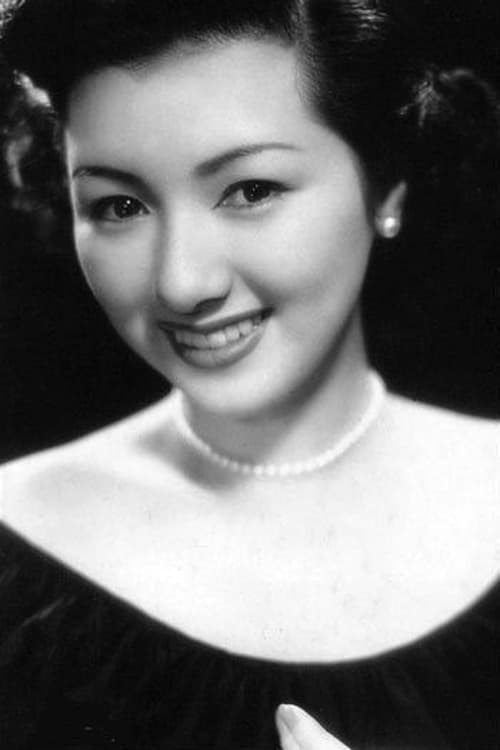
Yukie Kawase
A man whose son has been murdered pushes to create laws to financially protect victims' families.
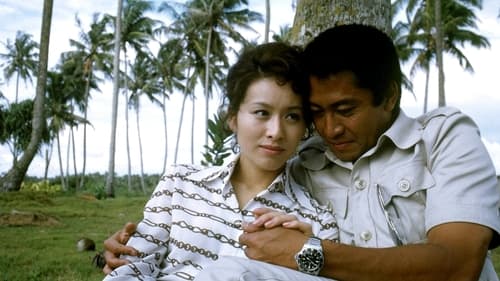
A Japanese businessman is sent to Sri Lanka and meets a beautiful Japanese woman with a past. They befriend an old Japanese-Indian widow who has an estranged son in Japan.

Akiko (Nobutoshi's wife)
A woman looks after her father in law.

Kaede
An abandoned temple in the mountains outside of the old capital city of Kyoto is the scene of a fated meeting between a traveling priest, two women, and a vicious killer. Bloody violence erupts whenever strangers approach the temple. Can the traveling priest bring his belief in the Buddha and rid the three temple residents of the devils that hold their souls?

Otsugi, Umpei's mother
하나오카 세이슈는 전신마취술을 연구하는 의사로, 그의 아내와 어머니는 세이슈를 사랑한 나머지 서로 실험대상이 되려고 경쟁한다. 세이슈는 두 사람의 경쟁관계를 교묘히 이용하여 실험에 성공한다.

Kuniko, the Mother
When an only child is struck by a car and dies, the child's mother seeks vengeance against the driver in this thrilling drama. The car was driven by the wife of a company president who is having an affair. The woman's husband manages to buy silence about the incident, but the victim's mother discovers the identity of the driver. After she secures a job in the home of the company president and his philandering spouse, the woman plans to murder the couple's son when he reaches the age of her late son.
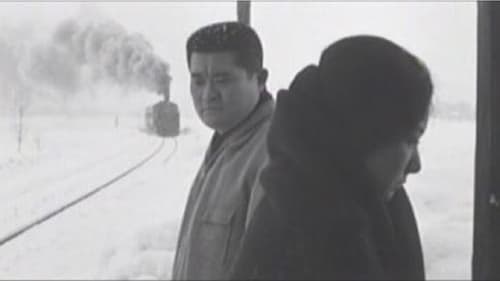
Ine
Young widow Ine is suffering under the harsh treatment of her mother in law. As a former Geisha, Ine had struggled to be accepted into the well-established Rokujo family from the beginning. With the support of Jiro, a young man Ine's late husband had saved from homelessness as a young boy, Ine tries to keep the family's heritage of silk processing alive. Their close relationship soon causes gossip among the villagers and threaten Ine's position in the family even further ...
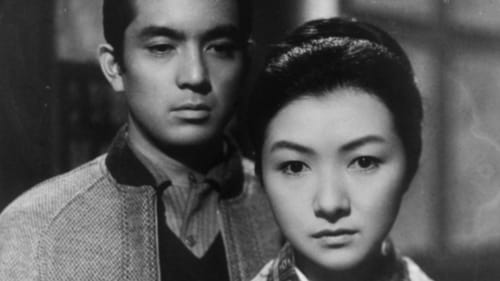
Reiko Morita
전쟁 중에 남편을 잃은 레이코는 조그만 가게를 꾸리며 20년 가까이 늙은 시어머니를 비롯한 시댁 식구들을 돌보고 있다. 시동생 코지는 가게를 크게 키우고 그동안 고생한 레이코에게도 보답하고 싶지만 시누이들은 레이코가 집에서 떠나주길 바란다. 한편, 코지는 레이코에게 순수한 사랑을 고백하는데, 놀라면서도 마음이 흔들린 레이코는 집을 나가기로 한다.

Nobuko Shimizu
A woman remember's her own marriage when dealing with the love life of her son.

Komako Kuwata
Story of a resourceful hobo (Kobayashi), a con woman (Takamine) who pretends to be a victim of the Nagasaki A-bomb, and two orphaned children who become a most atypical Japanese family.
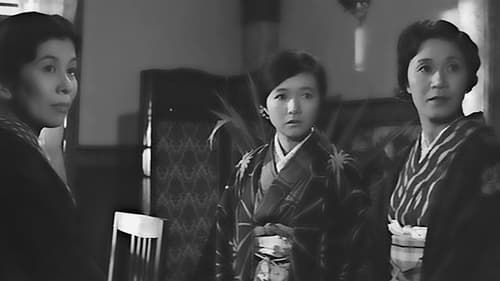
Fumiko Hayashi
일자리를 찾던 가난한 후미코는 카페 `기린`에서 일하게 된다. 후미코는 자신이 쓴 시를 손님들에게 보여주기도 하는데, 그러던 중 한 남자가 그녀의 시를 칭찬하며 동인지의 일원이 되기를 권한다. 후미코는 그와 함께 카페를 떠나지만, 그녀의 생활은 순탄치 않다. 어느 날, 그녀의 작품 〈방랑기〉가 잡지에 실리고 후미코에게 새로운 인생이 열린다.
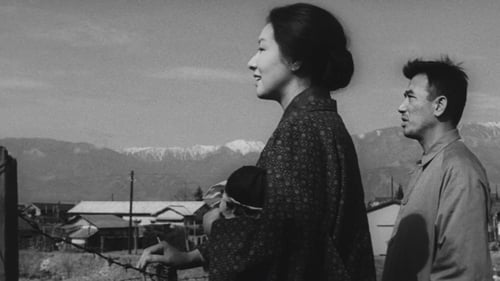
Torae Nonaka
A demobilized soldier becomes a day laborer with a road construction gang, and his wife goes to work to bolster their income. Their modest dream is to see their son grow and to be happy as a family.

Costume Supervisor
In 1919, a group of Japanese immigrants arrives in Hawaii. Among them Yoshio Inoue and his wife Kishimo and Sumi, a young woman ready to get married soon. With the soil that is hard to work and the subtroipical climate, the immigrants have to cope with a hard life. But after years of hard work, Yoshio finds work as a teacher while his wife manages to open a small grocery store. But with the war around the corner, life becomes more and more complicated for the Japanese immigrants in a foreign country.

In 1919, a group of Japanese immigrants arrives in Hawaii. Among them Yoshio Inoue and his wife Kishimo and Sumi, a young woman ready to get married soon. With the soil that is hard to work and the subtroipical climate, the immigrants have to cope with a hard life. But after years of hard work, Yoshio finds work as a teacher while his wife manages to open a small grocery store. But with the war around the corner, life becomes more and more complicated for the Japanese immigrants in a foreign country.
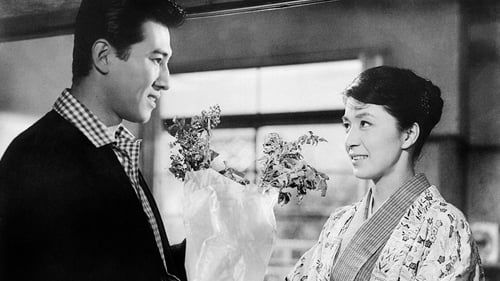
Yoshiko, Ishikawa-ke no yome
Drama about the lives of the five daughters and daughter-in-law of a store owner.
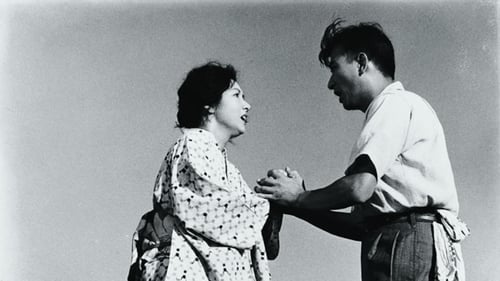
Sadako
The year is 1932, and a woman, whose tenant-farmer fiancé is fighting in China, is raped by the landowner's son, who has returned from the war with a crippling injury, and then forced into marriage with him. In four more chapters, presented over three decades, their children undertake their own searches for love, while the parents try to make each other as miserable as possible.

Miho Nishigaki
In "The Other Woman" the children of a distinguished professor find that the woman they have come to regard as their racy and slightly disreputable Ginza aunt is really their mother.
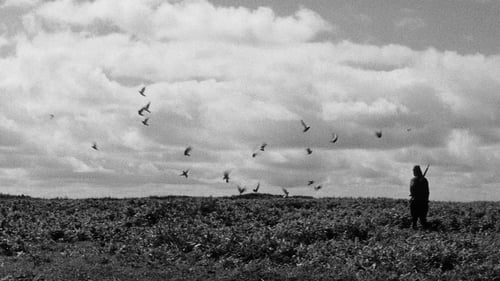
Hinanmin no Onna
전쟁에 패전한 일본의 병사들은 곳곳으로 퍼지고. 카지는 한 무리의 병사들을 이끌고 고향으로 돌아가는 길에 나선다. 집으로 향하는 도중 난민들 무리를 만나며 그들까지 자신의 무리에 받아들여서 그들을 이끌고 목적지까지 향한다. 그들은 여행 중 여기저기에 있는 중국군과 소련군들의 공격을 받지만 카지는 자신을 집에서 기다리고 있는 사랑스러운 부인 미치코를 생각하면 힘든 걸음을 계속해서 앞으로 나아간다. 하지만 결국 카지의 무리는 소련군에 잡혀 포로가 되고 카지의 리더십을 통하여 그곳에서의 생활을 견뎌내지만 한 때 일본군이었지만 소련 포로수용소 안에서 포로관리인이 된 일본군들의 부조리를 참지 못하고, 자신의 동료를 죽인 포로관리인을 살인한 카지는 소련 포로수용소를 탈출하여 자신의 고향으로 향한다.

Akiko Katayama
전쟁에서 겪은 사고 때문에 청각을 잃은 아키코는 특수학교에서 만난 청각장애인 미치오와 결혼한다. 척박한 환경 속에서도 두 사람은 작은 행복을 향해 열심히 노력하고, 영화는 이들이 삶에서 만나는 기쁨과 슬픔, 고난의 순간을 생생하게 묘사한다.
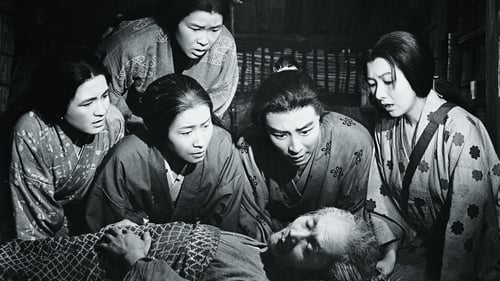
Okei
전국 시대, 가이 지방의 후에후키 강변. 사다헤이와 오케이는 아들 셋과 딸 하나를 데리고 농사를 지으며 살고 있다. 농사를 싫어한 장남 소조는 입신양명을 꿈꾸며 다케다 신겐의 휘하로 들어가고, 부모의 반대에도 불구하고 동생들까지 데려가 버린다.
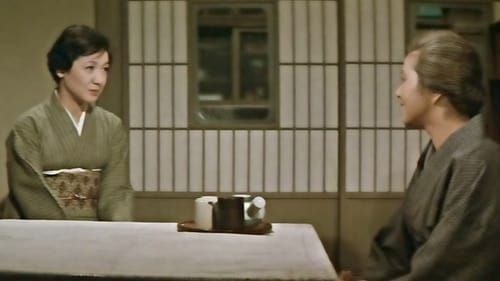
Sakanishi Kazuko, Shingo's wife
딸이자 아내이자 엄마로 살아가야 하는 여성의 삶을 그린 영화. 장남 유이치로는 어머니와 동생들, 그리고 자식들을 보살펴야 한다는 책임감에 어깨가 무겁다. 그리고 이 책임은 유이치로의 아내인 가즈코에게 더욱 무겁게 다가온다.
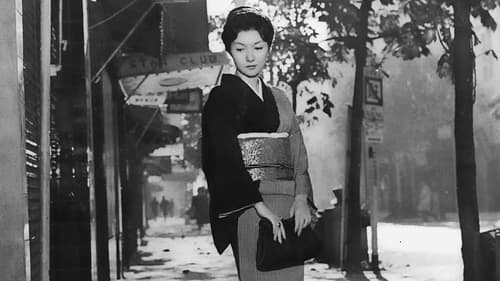
Costume Design
교통사고로 남편을 잃은 게이코는 긴자의 고급 바에서 얼굴마담으로 일한다. 하지만 게이코는 수완이 좋지 않아 돈 많은 단골을 옛 동료의 가게에 빼앗기고, 사장은 매상이 좋지 않다며 게이코를 질책한다. 밝은 미래를 꿈꾸지만 뜻대로 되지 않아 절망에 빠진 게이코는 오늘도 하는 수 없이 손님을 맞기 위해 바의 계단을 오른다.

Keiko Yashiro
교통사고로 남편을 잃은 게이코는 긴자의 고급 바에서 얼굴마담으로 일한다. 하지만 게이코는 수완이 좋지 않아 돈 많은 단골을 옛 동료의 가게에 빼앗기고, 사장은 매상이 좋지 않다며 게이코를 질책한다. 밝은 미래를 꿈꾸지만 뜻대로 되지 않아 절망에 빠진 게이코는 오늘도 하는 수 없이 손님을 맞기 위해 바의 계단을 오른다.
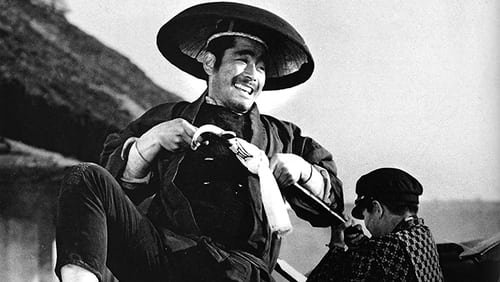
Yoshiko Yoshioka
인력거인으로 '불사신 마츠', '무호마츠'로 불리우던 마츠고로(미후네 토시로)가 오랜만에 고향인 오쿠라에 돌아왔다. 노일 전쟁의 승리에 열광하던 즈음, 나무에서 떨어져 다리를 다친 소년 토시오를 구한 것이 연이 되어 마츠고로는 소년의 아버지 요시오카 대위(아쿠다가와 히로시)의 집에 드나들게 된다. 대위는 무지하긴 하지만 호탕하고 너그러운 마츠고로를 신뢰한다. 대위가 가족을 마츠고로에게 부탁하고 죽자 마츠고로는 일심으로 토시오와 미망인(다카미네 히데코)에게 전력을 다한다. 고교 진학을 위해 토시오가 오쿠라를 떠나자 마츠고로는 눈에 띄게 늙고 술에 빠지게 된다. 어느 여름 기온 축제의 날 귀성한 토시오를 위해 마츠고로는 기쁜 나머지 축제 수레 위에 올라가 일생 일대의 기온의 북을 친다. 몇일 후 요시오카 부인 앞에서 마츠고로는 '전 마음이 더러워요!' 라고 오랫동안 키워왔던 부인을 향한 사모의 마음을 고백하고 운다. 어느 눈이 내리는 날, 교정의 한 켠에 미소를 머금은 채 마츠고로의 사체가 발견된다. 남겨진 짐 속에는 요시오카 집에서 받은 축하 선물과 모자 명의의 저금 통장이 있었다.
(2003년 한국시네마테크협의회 - 일본영화의 황금기 1950년대 거장 15인전)
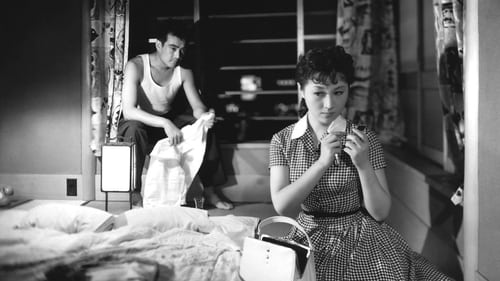
Sadako Yokokawa
Two detectives begin a stakeout based on the slim chance of catching a murderer whom they suspect will try to reunite with an old flame.
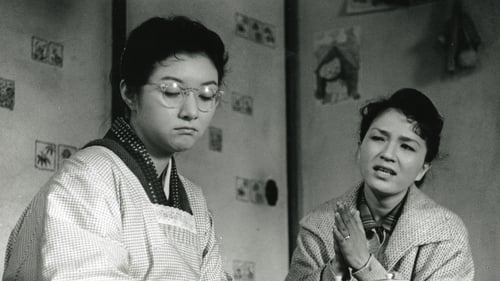
Yuriko
The plans of a trio of burglars are continually thwarted by the arrival of visitors to the house they plan to rob.

The story of the trials and tribulations of a lighthouse keeper and his wife.
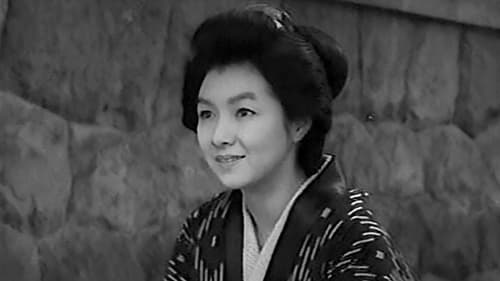
Oshima
어릴 때부터 생업전선에 뛰어든 뒤 몇 명의 남자들 사이에서 험난한 시간을 보낸 오시마의 삶을 그린 작품. 19살에 결혼한 오시마는 열심히 일하면서 행복하게 살려 하지만 바람기 많은 남편 때문에 마음 고생을 한다. 여기에 불운한 사고까지 겹치면서 오시마는 이혼을 하고 다른 마을로 팔려간다. 하지만 그녀는 끝까지 좌절하지 않고 계속해서 희망을 찾는다.
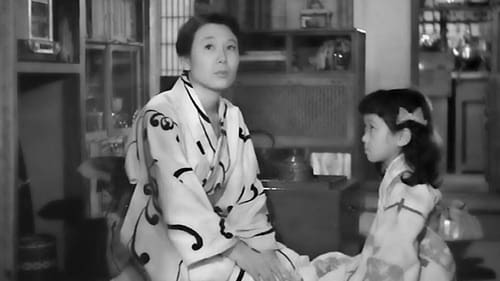
Katsuyo, Otsuta's daughter
츠타가 운영하는 야나기바시의 기생집. 어느 날, 남편과 아들을 잃은 리카가 직업소개소를 통해 일자리를 구하러 찾아온다. 츠타는 리카가 이름을 바꾸면 일을 할 수 있게 해주겠다고 하고, 리카는 이름을 ‘오하루’로 바꾼 후 식모살이를 시작한다. 힘들어도 온갖 허드렛일을 열심히 하던 오하루는 시장을 보러 갔다가 츠타의 기생집이 빚더미에 눌려 있음을 알게 된다. 쇠락한 기생집에서 생활하는 게이샤들의 애환을 당대 최고의 여배우들이 멋지게 연기해낸 작품이다. (2011년 시네마테크부산 - 나루세 미키오 특별전)

Kiyoko
Kiyoko (Takamine Hideko) and her husband want to open a coffee shop. She becomes increasingly close to the bank clerk (Mifune Toshiro) she's asked for a loan.

Directed by Yoshiro Kawazu

The story of Yoshinaka during the tumultuous period of warring related to us in the Heike Monogatari. Close in setting to Kinugasa’s famous Gate of Hell (1953).

Akiko Kaneda
Portmanteau film about young lovers.

Fuyuko Terada
A young widow, made world weary by her abusive, neglectful husband, finds herself in a minor scandal when she's seen with her intense, no-nonsense childhood sweetheart.
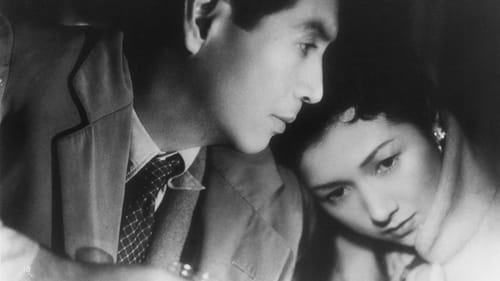
Yukiko Koda
태평양 전쟁 중에 도미오카를 만나 사랑에 빠진 유키코는 그가 이혼하고 자신과 살아갈 것이라고 생각한다. 그러나 그는 여전히 아내와 함께 살고 있었고, 유키코의 갑작스러운 방문에 놀란 도미오카는 집을 나와 온천이 있는 여관으로 그녀를 데려간다. 그리고 아내가 병이 들어 도저히 떠날 수 없다고 하는데...
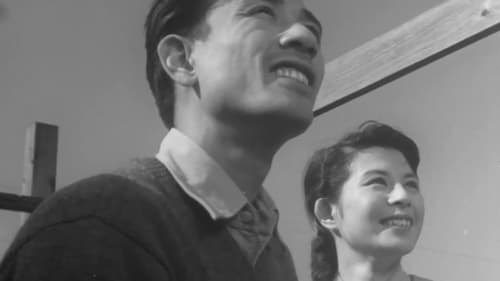
Yasuko, Ryoichi's sister
This drama of middle-class life in postwar Japan tells the story lower-middle-class workers in the city of Kawasaki, and their troubles and travails.

Ôishi Sensei
1928년, 쇼도지마의 분교에 젊은 여선생이 부임한다. 그녀는 점점 섬의 생활에 융화되며 12명에 불과한 학생들은 선생님께 가능한의 애정을 표한다. 학생 중 한 명인 마츠에는 우동 집에서 일을 하고 고토에는 집에 혼자 남겨진 채 폐병으로 죽어가는 등 섬의 생활은 가난하기만 하다. 전쟁이 시작되며 오이시 선생의 남편도 학생들도 차례차례 전쟁에서 죽어 가고, 오이시 선생의 딸마저도 나무에서 떨어져 죽어버린다. 패전 다음해, 오이시 선생은 다시 섬의 분교로 돌아와 옛 제자의 아이들의 담임이 되는데...

Yoshie Izushi
A student at a woman's university takes a controversial action against the school's old-fashioned doctrines.

Otoma
A young woman, who must support her father as a middle-aged man's mistress, finds herself falling in love with a student closer to her age.

Senko Azuma
Gosho’s most celebrated film both in Japan and the West, Where Chimneys Are Seen is perhaps the most compelling example of his concern for, and insights into, the everyday lives of lower-middle-class people. Based on Rinzo Shiina’s novel of the absurd, the film depicts the lives of two couples against the backdrop of Tokyo’s growing industrialization during the 1950s.

Carmen
오랜 스트리퍼 친구인 아케미와 아사쿠사의 스트리퍼 카르멘은 아버지가 없는 아이를 부잣집 문 앞에 버리고 온다. 그러나 그 부잣집 가족은 이제 막 파리에서 돌아온 아방가르드 화가 아들의 전 애인이 복수를 위해 자신의 아이를 문 앞에 버리고 간 것이라고 오해한다. 그 부잣집 아들은 카르멘에게 누드 모델을 서줄 것을 부탁하고 카르멘은 그와 사랑에 빠지는데...
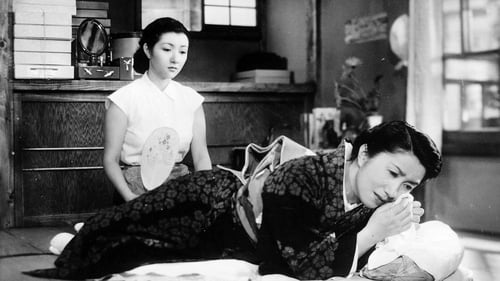
Kiyoko
관광버스 안내원을 하는 키요코의 가족은 도쿄의 서민 동네에 살고 있다. 오빠와 두 언니, 그리고 막내 키요코의 4형제는 모두 아버지가 달라서인지 다툼이 그치질 않는다. 지긋지긋하게 싸우는 가족들의 모습에 질린 키요코는 집을 나와 하숙을 시작하게 된다. 나루세 미키오 감독이 다이에이 영화사에서 찍은 최초의 영화로 익숙하지 않은 환경에서의 촬영이었으나, 가족들이 각자의 마음을 숨긴 채 소바를 먹는 장면은 나루세 미키오 특유의 시선극을 잘 보여준다. 20세기 중반 일본 영화의 황금기를 이끌었던 거장 나루세 미키오의 대표작

Buntaro, the president of a food trading company got tired of the day-to-day routine of life. The new secretary, Nobuko, suggested her "shacho-san" (the president) run away from the job. Nobuko took Buntaro to her home and introduced him to her own family as friend, "Sachio-san"...

Atsuko Takimoto
Atsuko is an office secretary who is also her family's primary source of income and caretaker in postwar Japan.

1951 Japanese movie

Tomoko, Kosaku's daughter
The Ueki family may not be wealthy, but smiles are never in short supply. The father is awarded prize money for 25 years of service to his workplace, but has it stolen on the way home from the ceremony...
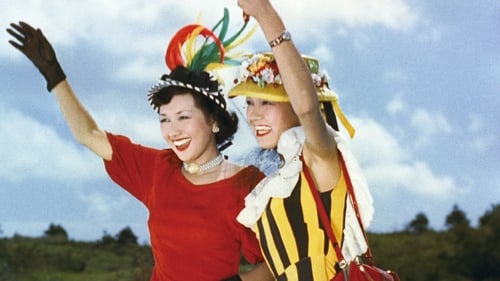
Kin Aoyama aka Lily Carmen
소와 말들이 뛰노는 평화롭고 한적한 산골 마을. 어릴 적 가출을 한 뒤 도쿄에서 스트립퍼로 일하고 있는 카르멘이란 예명의 오킨이 자칭 금의환향을 하겠다는 편지를 보내왔다. 오킨은 자신의 직업을 '정말로' 예술이라고 믿고 있는, 머리가 약간 모자라는 여자다. 오킨의 언니는 그 편지를 들고 가서 아버지께 보이며 오킨의 금의환향(?)을 허락해 줄 것을 부탁하지만 아버지의 반응은 냉담하다. 결국 남편과 상의를 한 끝에, '일본은 문화국가'임을, 그래서 응당 예술가는 어떤 일이 있어도 대우해 주어야 한다고 굳게 믿고 있는 교장 선생에게 아버지를 설득시켜 줄 것을 부탁한다. 우여곡절 끝에 귀향을 허락 받은 오킨. 산골 마을에서는 꿈도 꾸지 못할 파격적인 모습으로 금의환향을 하게 되고, 그런 오킨과 그 동료 마야의 모습은 순박한 산골 마을 사람에게 일대 파문을 일으키며 갖가지 해프닝이 벌이지게 된다. 한편, 돈이 되는 일이라면 물불을 가리지 않는 탐욕스러운 사업가인 마르쥬는 마을 사람들을 상대로 한 오킨의 스트립쇼를 계획하게 되는데...

Director Hiroshi Inagaki's early version of the life and death of famed swordsman Sasaki Kojiro. Otani Tomoemon gives a brilliant performance as Sasaki Kojiro, who rises from humble beginnings to national fame, and a young Toshiro Mifune appears as the legendary master swordsman Miyamoto Musashi for the first time and essentially sets the standard for future portrayals.This masterpiece is based on the original story as written by noted author Murakami Genzo and is far superior to any other versions. Following Kojiro from his earliest days through his fateful meeting with Musashi, this movie is filled with exciting and dramatic moments culminating in the best version of the final duel ever seen on film.
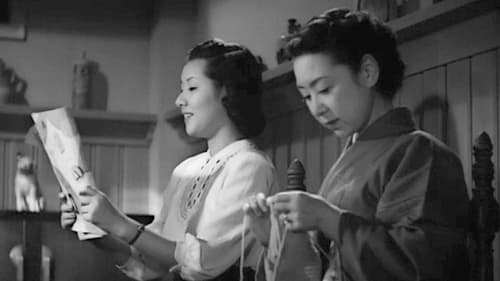
Mariko
세츠코는 남편 미무라 때문에 불행한 결혼 생활을 이어가고 있다. 엔지니어 출신의 남편이 직업도 얻지 않고 매일 술만 마시는 까닭에 괴로운 것이다. 그럴 때마다 세츠코의 마음속에는 오래 전 헤어질 수밖에 없었던 히로시가 떠오른다. 사랑하는 사이였지만 프랑스 유학 때문에 헤어질 수밖에 없었던 것. 하지만 히로시가 돌아오면서 새로운 국면을 맞이한다.
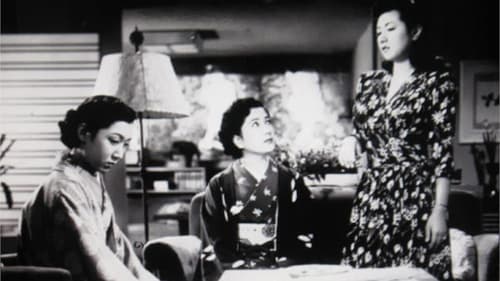
Taeko

Shizuko Kasagi and Hideko Takamine star as young women who try to raise money for a needy old friend by becoming wandering singers who work for tips in Tokyo's Ginza nightlife district.

Japanese adaptation of Marcel Pagnol's play "Marius", set in early XXth century Japan.

Ranko Komaki
부모가 정한 인담을 싫어, 오사카를 나와 도쿄에서 회사 근무를 하고 있는 카와키타구미의 오조지·코로쿠. 어느 때 그는 상경해 온 허수아·란코를 도망쳐 하숙처를 옮겨, 거기서 만난 테루코와 사랑에 빠진다. 하지만 카와키타조는 파산 위기에 있어서 란코와의 결혼은 놓칠 수 없는 것이 되었다.

Kôfuku eno shôtai - Invitation to happiness

Onatsu
Jidai-geki by Ryo Hagiwara

Lord for a Night is a 1946 Japanese film directed by Teinosuke Kinugasa.

Takamine
Two sisters, one a dancer and the other a script supervisor at a big movie studio, become embroiled in union activities when a strike is called in sympathy with striking railroad workers, one of whom boards with the sisters and their parents. The girls' father argues with them about their strike, but finds his views changing when he himself loses his job.

Akako Tatsuta
Reputedly based on Frank Capra’s 1939 film Mr. Smith Goes to Washington, A Descendant of Tarô Urashima is about a repatriated soldier who becomes populist politician in the Japanese Happiness Party.

1946 Toho film directed by Kiyoshi Saeki
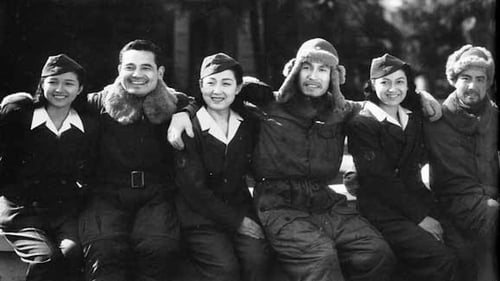
The story of an airport and its air traffic control crew in a remote and northern Japanese town. Three of the air traffic controllers are female with one of them working with her dead fiancé's sister. The engaged man had gone to war and never returned.

Based on a short story by Dazai Osamu, produced under the national film law. The film's hero falls in love with the youngest daughter of a family he is visiting to arrange an engagement for his friend who has been drafted to fight in the war.

Otae

Yamaneko
A sixteen-year-old who had been living on her own since her mother died, frequently gets in trouble with the police. She gets sent to an "institute" for young girls in the countryside. There the residents grow their own food, cook and clean for themselves, and are taught language, music, and sewing. While there the young girl slowly begins to form friendships and come out of her shell.

Kaido-jo

Chiyoko, Goro's sister
Hanakosan (1943, TOHO, MAKINO Masahiro), a thoroughly light and joyful musical comedy, influenced by Busby Berkeley films, against the national policy under the wartime, was made into a film from comic serials by SUGIURA Yukio published in a magazine.

The Opium War is a 1943 black-and-white Japanese film directed by Masahiro Makino. "Ahen senso" in Japan refers to the First Opium War. The story of the film concerns this war.

Taeko
1942 adaptation of Izumi Kyoka's novel.

A bizarre murder at a hot springs resort threatens to disrupt an Edo detective's (Hasegawa) vacation. When his hot-blooded wife (Yamada) starts snooping around, however, he finds himself reluctantly drawn in to the case.

Hideko
What is marriage? Young couple in match-making wanted to know before they decide. They visited married couples of sisters and brothers. Love comedy in 1942.

A 1942 Jidaigeki by the veteran jidaigeki filmmaker Kunio Watanabe about the legendary warrior Musashibo Benkei
with Hideko Takamine portraying Minamoto no Yoshitsune (who is, of course, a man).
The film climaxes in the famous encounter/fight btw Benkei and Yoshitsune at the Gojo Bridge.
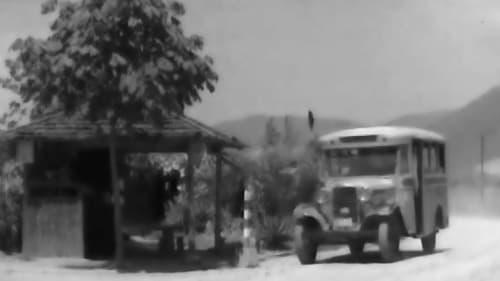
Okoma, the bus conductress
오코마는 작은 시골 마을의 낡은 버스에서 차장으로 일하고 있다. 그런데 최근 손님이 서서히 줄어들어 운전 기사인 소노다와 그녀는 일자리를 잃을 처지에 놓였다. 고심 끝에 오코마는 관광객들을 대상으로 관광지 안내 서비스를 기획하고, 마을의 소설가까지 끌어들여 새로운 시작을 하려 한다. 신인이었던 다카미네 히데코가 17살에 출연한 영화.

Sachiko Kamata
A "slice-of life" film about a group of high school girls in 1940s Japan.

Jurobei, a kaisen tonya (wholesaler in port) in Awa, was wronged and killed on the day of the Dance Festival by the evil merchant & the chamberlin. His brother (Kazuo Hasegawa) vowed vengeance on the day of his brother's death. So every year the villains are worried during the Awa Dance Festival (which is part of the Obon festival), but nothing has ever happened, until seven years later...

Ine Onoda
Ine Onoda, the eldest daughter of a poor family of farmers, raises a colt from birth and comes to love the horse dearly. When the horse is grown, the government orders it auctioned and sold to the army. Ine struggles to prevent the sale.

Feature film.

Princess
Second part of the Comedy-Musical about the legendary Monkey King.

Princess
Comedy-Musical about the legendary Monkey King.
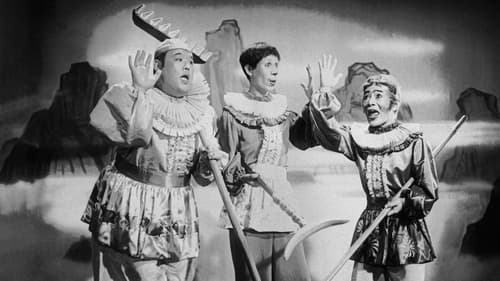
Princess
A legendary pre-war comedy operetta starring Enomoto Kenichi, Hideko Takamine and Li Xianglan. The Sanzo Ikkou continues its westward journey, on a mission to prevent a demonic resurrection. As Genjo Sanzo, Cho Hakkai, Sha Gojyo, and Son Goku (Kenichi Enomoto) fight their way to their goal, their path is fraught with internal strife.

9th directorial work by Yamamoto Satsuo.

Hideko Takashima
Hideko, a young Baseball fan, determined to cheer for her favourite baseball team by creating a new song for them.

Based on the book Heaven and Maiko by Yoshiya Nobuko, it is the story of two girls of different family backgrounds in Osaka.
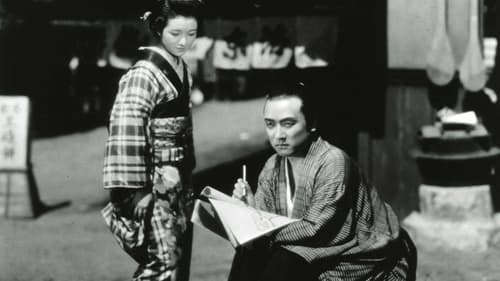
Otsu
A forceful indictment of the devastating effects of war and nationalistic fanaticism on the average man, who, in the face of the absurdity of violence, is reduced to apathy or victimhood.

Japanese film based on the life of writer Ichiyo Higuchi (1872-1896).

My Daughter's Only Wish tells the story of a poorly paid and clumsy office clerk, played with much comedic talent by Atsushi Watanabe. His biggest problem: His daughter Hideko is too clever and is expected by her teachers to enter the school for higher girls after graduating from primary school. But how is our poor clerk supposed to pay the school fees? How does poor Hideko feel about the situation? How can they cope with the envious colleagues who have less brighter daughters? And - an important question for Hideko's mother - what will the neighbours think? What's the point about getting a good education for girls anyway?


Shigeko
Chocolate and Soldiers (チョコレートと兵隊, Chokorēto to Heitai) is a 1938 Japanese war film directed by Sato Takeshi and one of the most effective Japanese propaganda films of the late 1930s. The American director Frank Capra said of Chocolate and Soldiers "We can't beat this kind of thing. We make a film like that maybe once in a decade. We haven't got the actors. It shows the common Japanese soldier as an individual and as a family man, presenting even enemy Chinese soldiers as brave individuals. It is considered to be a "humanist" film, paying close attention to the human feelings of both the soldier and his family. Cinema theorist Kate Taylor-Jones suggests that Chocolate and Soldiers provided "a vision of the noble, obedient and honourable Japanese army fighting to defend the emperor and Japan.
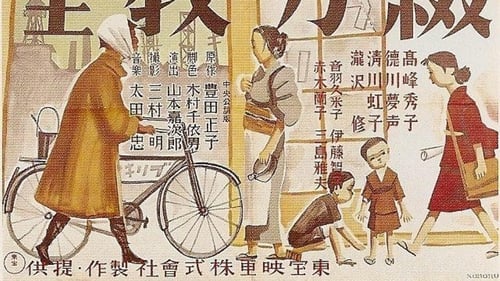
Masako
Based on an autobiographical story by Toyota Masako.

A colourful study of theatrical life. Two acting troupes vie for the Kyoto market during the Genroku Era. Tojuro, an extremely popular actor, feels the limits to his acting when he sees his rival troupe put on a new type of play featuring its star, Nakamura. He has the famous Chikamatsu write a new play but cannot get used to the character he is to play in it.

Yuri
A half brother and sister work at a hotel in Hakone respectively as a porter and a souvenir shop clerk. They are close. One day a woman named Hasegawa checks into the hotel in order to recuperate in a calm environment with fresh air. She is the mother of the store employee. The mother and daughter were separated due to the Kanto earthquake. The girl was practically raised by her older half brother.

Hide-chan (Hideko Takamine) and her family are on a trip to Tokyo. While visiting a fairground, a pickpocket (Kamatari Furukawa) steals the father's wallet. While everyone is trying to hunt down the thief, Hide-chan decides to make the most of it and enjoy her stay, while the thief and his main pursuer (Akira Kishii) play hide-and-seek among the funfair's spectacles and freakshows

Kayo and Kuniko graduated from girls' school together and are as close as sisters. Kuniko's fiancé, Minakami, feels something that attracts him deeply towards Kayo. On the other hand, Kayo prays for the happiness of her best friend and marries a very ordinary man. However, at one point, this mediocre but increasingly ferocious husband died in an accident ... A triangular love story develops depicting a woman's heart that sways between love and morals. Based on a novel by Nobuko Yoshiya, there were originally two parts to the film (If Spring Comes & Fall Once Again), both supposed to be 85 minutes, but apparently what we have now is this 103-minute amalgam of the two.

Hamako
Three men fall in love with the same young girl who works in a tonkatsu restaurant in the Shitamachi district of Tokyo.

The eldest daughter of a noble family is in love with an aviator while being courted by a fellow aristocrat she thinks is a dullard. Told from the perspective of Ryota. In this second part, we learn that Akemi is pregnant...

The eldest daughter of a noble family is in love with an aviator while being courted by a fellow aristocrat she thinks is a dullard. This part is told from the perspective of Akemi.

Momoyo
Part two of Shimizu's major silent Seven Seas, a family drama of the intertwining fates of the rich, decadent Yagibashis and the far less prosperous Sone family.

Mitsuko's child
Film by Hiroshi Shimizu, featuring an early role for frequent Ozu and Naruse collaborator Hideko Takamine.

Momoyo Sone
The film is a lengthy work interweaving characters from different backgrounds and social strata in a narrative centered around the experiences of its heroine, Yumie Sone. Over two hours long, Seven Seas was released theatrically in two parts, with the first part entitled "Virginity Chapter" coming out in December 1931, while the second part, "Chastity Chapter," followed in March 1932. Near the beginning of the narrative, at a garden party given by the wealthy Yagibashi family in Tokyo, Yumie meets Takehiko, the Yagibashis' playboy son and the brother of Yumie's fiancé, Yuzuru. Yumie, a young middle-class woman, lives with her ailing father, a retired ministry official, an older sister, and a younger sister still a child (played by a very young Hideko Takamine). Takehiko, who has just returned from a trip to Europe, is attracted to Yumie and contrives to have her stay overnight at his family's mansion where he takes advantage of her.
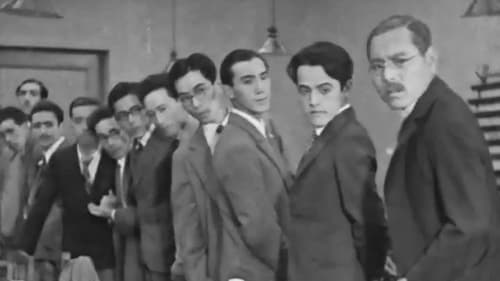
Sono Choujo
대학을 졸업한 오카지마는 보험회사의 내근사원, 그러나 연로한 동료사원이 퇴출당하는 것을 보고 사장에게 반감을 갖게된다. 하지만 그 결과 그도 직업을 잃고만다. 지금은 서양식당을 운영 하지만 학생시절의 선생님이었던 오무라가 오카지마를 고용한다. 그리고 오카지마가 전단지 뿌리는 것을 본 그의 아내는 울음을 터트린다.

Iwao

Haruko
The 1929 Japanese film "Mother" which helped child actress Hideko Takamine become a star.
